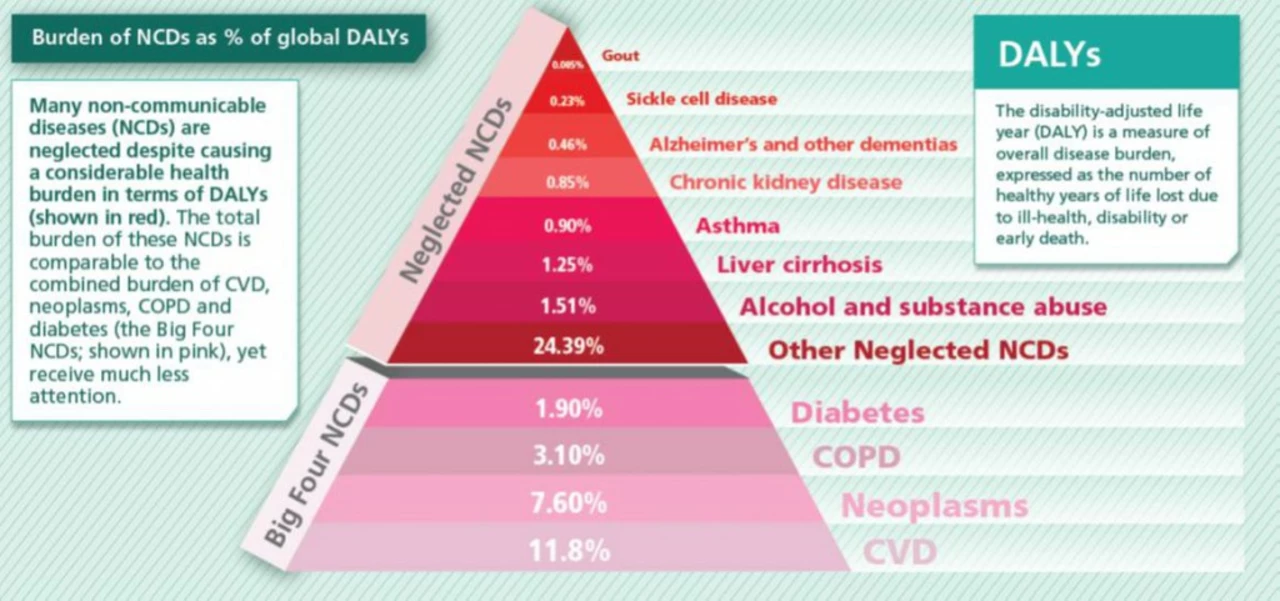Neglected Tropical Diseases – Quick Guide for Everyday Readers
Ever wondered why some illnesses keep showing up in warm, poor regions while you never hear about them on the news? Those are called neglected tropical diseases, or NTDs. They affect more than a billion people worldwide, mostly where health services are thin and sanitation is weak. Even if you live far from the tropics, understanding NTDs matters because travel, migration, and climate change can bring these bugs closer to home.
Common Types and How They Show Up
The most talked‑about NTDs include dengue fever, leishmaniasis, schistosomiasis, lymphatic filariasis, and onchocerciasis. Dengue spreads through mosquito bites and gives you a high fever, joint pain, and a rash that looks like measles. Leishmaniasis comes from sand‑fly bites; it can cause skin sores that turn into open ulcers or affect internal organs with fever and weight loss. Schistosomiasis is picked up in fresh water contaminated by snail larvae – it leads to itchy rashes, stomach pain, and blood in urine. Lymphatic filariasis, often called elephant foot disease, is transmitted by mosquitoes and causes painful swelling of legs or genitals. Onchocerciasis, also known as river blindness, lives in black‑fly habitats near rivers and can cause severe itching, skin thickening, and even loss of vision.
These diseases share a few red flags: fever that won’t go away, strange rashes, swelling of limbs, or persistent cough. If you travel to an endemic area and notice any of these signs, see a health professional right away – early treatment can stop complications before they get serious.
Simple Ways to Reduce Your Risk
The good news is most NTDs are preventable with basic steps. First, protect yourself from insect bites: wear long sleeves, use EPA‑approved repellents, and sleep under bed nets treated with insecticide when you’re in high‑risk zones. Second, drink only boiled or filtered water; avoid swimming in fresh lakes or rivers that might harbor parasite larvae. Third, practice good hygiene – wash hands with soap after using the toilet and before handling food. Fourth, keep your surroundings clean: eliminate standing water around homes to cut mosquito breeding grounds.
If you work or volunteer in affected communities, support local sanitation projects like latrine building or waste management. Vaccines are available for a few NTDs (like dengue) and new ones are in development, so stay updated on recommended shots before traveling.
Finally, remember that knowledge is power. When you recognize the signs early and take simple protective measures, you protect yourself, your family, and anyone you come into contact with. Check out our other articles for deeper dives on specific diseases, treatment options, and the latest research. Stay safe, stay informed, and keep the conversation going – the more we talk about NTDs, the less neglected they become.

The Role of Ivermectin in Neglected Tropical Diseases: A Global Health Perspective
In recent years, Ivermectin has emerged as a game-changer in the fight against neglected tropical diseases (NTDs). As a powerful and safe anti-parasitic drug, Ivermectin has been instrumental in controlling and potentially eradicating some of the most debilitating NTDs, such as river blindness and lymphatic filariasis. This global health breakthrough has been made possible through mass drug administration programs and strong partnerships between governments, NGOs, and pharmaceutical companies. It's truly inspiring to see how Ivermectin has transformed the lives of millions suffering from these devastating diseases. I remain optimistic that with continued efforts and innovation, we can achieve a world free of NTDs.